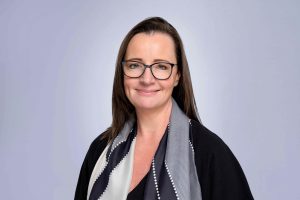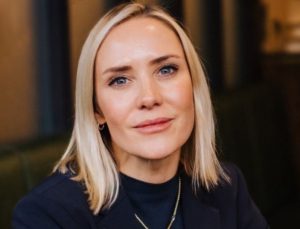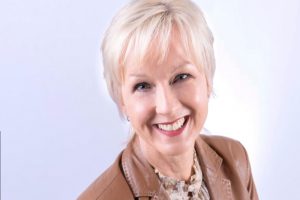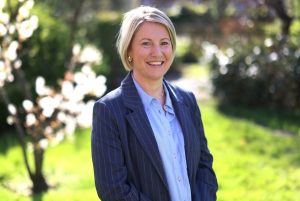The XX Factor: It’s not all fun and games for women in the digital sector

“WE have reached a new area in developing expertise and know-how,” said Lesley Crowley, formerly of domain name registry Nominet. But does this new era in the digital sector include everybody?
The digital sector is seen as innovative, always moving on to the next new thing, but the evidence is stacking up against its forward-thinking credentials.
Just 27% of UK digital workers are female, according to the latest report from the UK Commission for Employment and Skills, and even within the wider business community, only 14% of chief information officers are women. This number has been static for the past 10 years, according to research firm Gartner.
High-profile incidents of poor treatment of women in the digital sector – such as the online abuse of women in online gaming forums dubbed Gamergate, Ellen Pao’s resignation from Reddit after attempting to rid the site of revenge porn, and prolific online “trolling” – have raised the issues but also reinforced the negative perceptions and sparked debate on the subject.
Amy De-Balsi, the founder of digital recruitment platform Herd and the driving force behind Leeds Digital Job Fair, is in a privileged position as she’s always seen women in technology roles. Her mother was a developer in the 1980s at a company called F I Group, who employed mainly female staff.
“We need to show women the full range of opportunities in the sector,” she said. “There are more women coming through but there is a lot to do.”
The former chief executive of official domain name registry Nominet Lesley Crowley MBE said:“It goes without saying that you limit the field immensely when you don’t ask women into it,”
Ms Crowley, who is a non-executive at telecoms operator aql, as well as at the DVLA and the National Archives, received an OBE in 2013 for her services to the internet and ecommerce.
She was first introduced to the digital sector through Nominet. Leaving the company two years ago with 170 staff, it was evident how much had changed in the sector from being based in a converted cow shed with 28 staff.
“It doesn’t help that there are not many women at senior level,” she said, “but organisations like the 30% Club are trying to change this.” The 30% Club was founded in 2010 and aims to get 30% female representation on boards in the FTSE 100.
Ms Crowley said: “It stems from school-age, as many issues like this do. Girls don’t think about IT as a career, they see it as geeky and male-dominated.”
Only 17% of computer science degree students are female, according to the UK Higher Education Statistics Agency, and this indicated a poor pipeline of women in IT who could fill these top spots in the future.
Ms De-Balsi said: “Code Clubs are where you drive change, and the Yorkshire Code Club is aiming for 50/50 in terms of gender balance. It needs to start from a young age, from primary school we should teach children how to code.”
With the development of coding games such as Raspberry Pi and the Scratch Game, children are being introduced to coding at a young age.
Perception is a key factor in unlocking female talent in the digital sector, as well as other sectors facing skills shortages.
Emma Cheshire, founder of Dotforge, the tech startup accelerator, said: “Something has happened in the perception of what technology and engineering is that it has become a male domain. Most of the role models in industry are male.”
At Amazon, only 18 of its 120 senior managers are female. None of those women reports directly to chief executive Jeff Bezos, while only 30% of Google’s global staff are female.
“It’s about women seeing that it is a sector they want to work in,” Ms Cheshire said.
“We need parents to be saying to kids, go and work for Sky or Google, EMIS, big, listed multinational companies.”
“It’s not in the DNA yet that this is a career. It’s that fundamental. Digital is seen as something you get into if you’re interested in code, but not understood as this is mega business – as a part of the economy that is changing the way we do business.”
The perception that digital is closed to women is only reinforced stories such as the treatment of women in the gaming industry, and the abuse faced by former Reddit interim chief executive Ellen Pao over her attempts to curb ‘revenge porn’ on the site.
These and other incidents have captured media attention and paint the digital industry as a male-dominated world, hostile to women.
Ms Cheshire added: “The sector hasn’t helped itself. Press and public have been quick to jump on negative stories about way women have been treated. We have to make a point that all stories are important and actively support female business leaders and founders.”
Ms Crowley has seen the development of the digital sector over the years. She said: “At any senior level you have to develop resilience.
“There are some dark parts and bad behaviours on the internet. It is a generational and cultural thing. The internet is a fantastic form of communication until you’re the recipient of things like that.”
As the nature of digital continues to evolve, there has been a move away from the more technological aspects towards digital growth in every sector.
Ms Crowley said: “What I see is a move from pure IT to digital, which means people skills are becoming more central. As IT becomes more ‘human’, people can see the benefits of a diverse business. This will help break down barriers to further diversity.”
This diversification in digital is helping pave the way for a more diverse demographic in the industry.
“People need to know that not all of it is working in code,” said Ms Cheshire. “One of biggest issues in technology is adoption – you have to create something that other people want to use.
“It’s about marketing and engagement, understanding and refining people’s needs and the business opportunities there so that you can build a product that will be successful in the market.
She said: “It is right that the technology industry continues to integrate more into other sectors. As it does, we expect more of a mix – we need the knowledge of those that have worked in those sectors before being able to provide technology for them.”
Ms De-Balsi herself came to the industry in a roundabout way, after completing a geography degree and holding positions at Yorkshire Forward and as head of communications at Sky. She said: “The thing women, as well as men, have to ask themselves is: what do I enjoy? The good thing about digital is that careers in the sector are broad, jobs are evolving quickly and there is not a defined path to where you want to go.”







